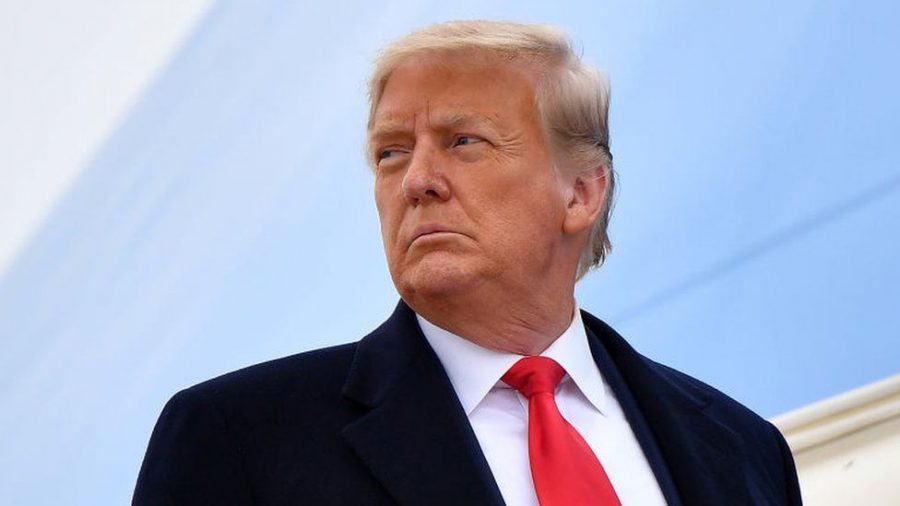Donald Trump acquitted in second impeachment trial
March 24, 2021
Donald Trump has been acquitted by the Senate in his second impeachment trial for his part in the Jan 6 attack on the US Capitol. It is a verdict that sways the former President’s hold over the Republican party even after leaving office.
After only five days of debate in the chamber which ironically was the scene of January’s invasion, a divided Senate fell 10 votes short of the two-thirds majority required to convict high crimes and misdemeanors. A conviction would have allowed the Senate to vote to disqualify him from holding office in the future.
Seven Republicans joined every Democrat to declare Trump guilty on the charge of incitement of insurrection after his month-long journey to overturn his defeat by Joe Biden and its conclusion on Jan 6, when Congress met to finalize the election results. The 57-43 vote represented the most support for conviction ever in a presidential impeachment trial. The outcome, which was never in doubt, reflected the anger of senators over Trump’s conduct as his supporters stormed the Capitol last month, and the grip the defeated president still holds over his party.
The conclusion of the Senate trial, only the fourth presidential impeachment in American history and Trump’s second in just over a year, ended one of the most uncertain chapters in the nation’s political history. Still shaken by the deadly riot that threatened America’s commitment to a peaceful transfer of power, senators of both parties were ready to turn the page.
From the outside, Trump’s allies in the Senate said they had no intention of convicting him. Though many Republicans explicitly supported Trump’s baseless claim of a stolen election, few defended his actions during the trial. Instead, they relied on a technical argument, advanced by his attorneys and rejected by a majority of the Senate as well as leading scholars, that the proceedings were unconstitutional because Trump was no longer in office.
One of the most prominent arguments Trump’s legal team made was that his Jan 6 rally speech was protected by the First Amendment, a contention that impeachment managers labeled “ludicrous”. This, after all, was an impeachment trial, not a criminal proceeding. An impeachment trial is a political process intended to judge whether an official was upholding their oath of office and a standard of conduct.
According to National Public Radio, “moments after the ‘not guilty’ verdict was announced, a defiant Trump thanked Republicans who stood by him and celebrated what he called ‘yet another phase of the greatest witch-hunt in the history of our country’”. In his statement, Trump expressed no regret for his actions and made no mention of the violence that unfolded because of him, but signaled his desire to remain a political force within the party.
Whatever Trump’s future plans, critics fear that a precedent has been set. The upshot of the trial, held at the very scene of the riots, is that a president can lie about an election and incite a mob, yet still not go through the ultimate sanction available to Congress. That is Trump’s dangerous legacy.



